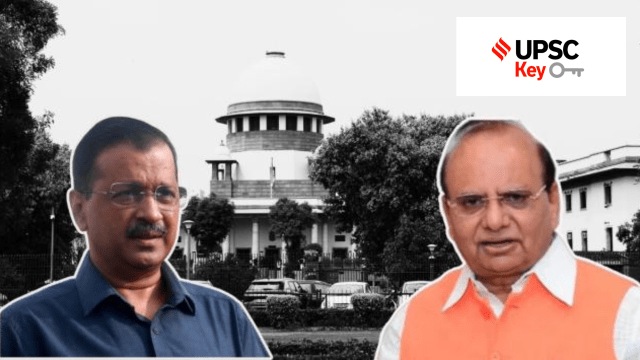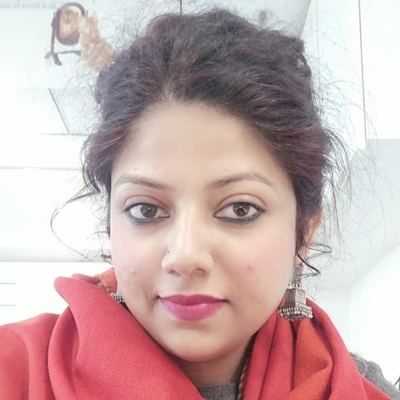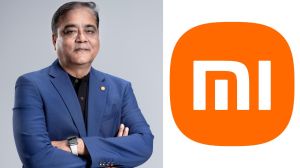Priya Kumari Shukla is a Senior Copy Editor in the Indian Express (digital). She contributes to the UPSC Section of Indian Express (digital) and started niche initiatives such as UPSC Key, UPSC Ethics Simplified, and The 360° UPSC Debate. The UPSC Key aims to assist students and aspirants in their preparation for the Civil Services and other competitive examinations. It provides valuable guidance on effective strategies for reading and comprehending newspaper content. The 360° UPSC Debate tackles a topic from all perspectives after sorting through various publications. The chosen framework for the discussion is structured in a manner that encompasses both the arguments in favour and against the topic, ensuring comprehensive coverage of many perspectives. Prior to her involvement with the Indian Express, she had affiliations with a non-governmental organisation (NGO) as well as several coaching and edutech enterprises. In her prior professional experience, she was responsible for creating and refining material in various domains, including article composition and voiceover video production. She has written in-house books on many subjects, including modern India, ancient Indian history, internal security, international relations, and the Indian economy. She has more than eight years of expertise in the field of content writing. Priya holds a Master's degree in Electronic Science from the University of Pune as well as an Executive Programme in Public Policy and Management (EPPPM) from the esteemed Indian Institute of Management Calcutta, widely recognised as one of the most prestigious business schools in India. She is also an alumni of Jamia Milia Islamia University Residential Coaching Academy (RCA). Priya has made diligent efforts to engage in research endeavours, acquiring the necessary skills to effectively examine and synthesise facts and empirical evidence prior to presenting their perspective. Priya demonstrates a strong passion for reading, particularly in the genres of classical Hindi, English, Maithili, and Marathi novels and novellas. Additionally, she possessed the distinction of being a cricket player at the national level. Qualification, Degrees / other achievements: Master's degree in Electronic Science from University of Pune and Executive Programme in Public Policy and Management (EPPPM) from Indian Institute of Management Calcutta ... Read More
UPSC Key- May 12, 2023: Know about Executive vs Judiciary on the same-sex marriage , Entry 41 of List II of the Seventh Schedule and Shiv Sena case
Exclusive for Subscribers from Monday to Friday: The Indian Express UPSC Key May 12, 2023, will help you prepare for the Civil Services and other competitive examinations with cues on how to read and understand content from the most authoritative news source in India.
 UPSC Key May 2023: Here's what you should be reading from the May 12, 2023 edition of The Indian Express
UPSC Key May 2023: Here's what you should be reading from the May 12, 2023 edition of The Indian Express Important topics and their relevance in UPSC CSE exam for May 12, 2023. If you missed the May 11, 2023 UPSC key from the Indian Express, read it here
FRONT PAGE
Delhi unique among UTs: SC gives state govt total control over services in NCT
Syllabus:
Preliminary Examination: Indian Polity and Governance
Mains Examination: General Studies II: Functions and responsibilities of the Union and the States, issues and challenges pertaining to the federal structure, devolution of powers and finances up to local levels and challenges therein
Key Points to Ponder:
• What’s the ongoing story- STATING THAT in a democracy, “the real power of administration must reside in the elected arm of the state”, the Supreme Court Thursday held that the state government will have legislative and executive control over administrative services in the National Capital Territory of Delhi (NCTD) except with regard to public order, police and land.
• What was the issue before the Court?
• For Your Information-In 2015, a Union Home Ministry notification said that the Lieutenant Governor of Delhi shall exercise control over “services”. The Delhi government challenged this before the Delhi High Court, which in 2017 upheld the notification. On appeal, a two-judge Bench of the Supreme Court referred the issue to a larger constitution Bench. In 2018, a five-judge Constitution Bench, headed by then CJI Dipak Misra, in a unanimous verdict laid down the law that governs the relationship between Delhi and the Centre. The ruling was in favour of the Delhi government. While the Constitution bench decided the larger questions, the specific issues were to be decided by a two-judge Bench. In 2019, two judges, (who were also part of the larger 5-judge Bench in 2018), Justices Ashok Bhushan and AK Sikri, delivered a split verdict on the specific issue of “services.” The split verdict then went to a three-judge Bench and eventually a five-judge Constitution Bench, which has now delivered its verdict.
• What was the bone of contention?
• What was the Centre’s argument?
• What did the court decide?
• What exactly Supreme Court said in its judgement?
• Do you agree that the Lt. Governor of Delhi has more power? Attest your opinion with some recent incidence.
• What is the 69th Constitutional Amendment Act of 1991?
• The Chief Minister of Delhi is appointed by the Lieutenant Governor (LG)-True or False?
• In Delhi, In the case of difference of opinion between the Lieutenant Governor (L-G) and his ministers, the Lieutenant governor’s (L-G) decision is taken into the consideration-True or False?
• Government of National Capital Territory of Delhi Act, 1991-Know the Key Provisions
• The Government of National Capital Territory of Delhi (Amendment) Act, 2021 and Government of National Capital Territory of Delhi Act, 1991-Compare and Contrast
• Know the Key Provisions of the Government of National Capital Territory of Delhi (Amendment) Act, 2021
• Articles 239AA and 239AB of the Constitution-Know in Detail
• There was Conflict between the Chief Minister of Delhi and the Lieutenant Governor (L-G)-What were the point of conflicts between the two?
• Supreme Court of India’s Verdict in Government of NCT of Delhi vs Union of India and Another in 2018 case-Know in Detail
• National Capital Territory of Delhi (NCTD) and Other Union territories-Compare and Contrast
• “NCTD, having a sui generis federal model, must be allowed to function in the domain charted for it by the Constitution”-What do you understand by this statement?
• “The Union and NCTD share a unique federal relationship. It does not mean that NCTD is subsumed in the unit of the Union merely because it is not a ‘State’,”-Comment
• The Legislative Assembly of NCTD has competence over entries in List II (state list) and List III (concurrent list) except for the expressly excluded entries of List II. The excluded entries are related to what?
• The Supreme Court also made it clear that “NCTD has legislative and executive power over services, that is, Entry 41 of List II of the Seventh Schedule.” Why did the Supreme Court have to come out with this directive?
• What Centre had contended with Entry 41 of List II of the Seventh Schedule?
• For Your Information-While the Supreme Court said that the legislative and executive power of NCTD over Entry 41 shall not extend to services related to public order, police, and land, these powers would remain with NCTD over “services such as Indian Administrative Services, or joint cadre services, which are relevant for the implementation of policies and vision of NCTD in terms of day-to-day administration of the region shall lie with NCTD”.
• “If a democratically elected government is not provided with the power to control the officers posted within its domain, then the principle underlying the triple-chain of collective responsibility would become redundant”-Elaborate further
• What is the extent of Delhi’s powers now?
• Extent of Delhi’s powers now- Article 239AA specifically excludes land, police and public order from the purview of the legislative powers of the Delhi government. The court acknowledged that these three issues can also have some overlap with “services” “The legislative and executive power of Delhi over Entry 41 (services) shall not extend over to services related to public order, police and land. However, legislative and executive power over such services such as Indian administrative services, or joint card of services, which are relevant for the implementation of policies and vision of NCT of Delhi in terms of day to day administration of the region, shall live with Delhi,” the court said.
Other Important Articles Covering the same topic:
📍What tilted scales in Delhi govt’s favour
📍Delhi govt to decide postings, transfers — but some red lines
📍Key takeaway for Aam Aadmi Party —Delhi not like other union territories
📍Control of services: Common thread in govt-LG tussles
📍Delhi Govt vs Centre: The Supreme Court’s verdict in 10 key points
Previous Year Mains Questions Covering the same theme:
📍Whether the Supreme Court Judgement can settle the political tussle between the Lt. Governor and elected government of Delhi? Examine. (UPSC Mains GS2, 2018)
📍The concept of cooperative federalism has been increasingly emphasized in recent years. Highlight the drawbacks in the existing structure and the extent to which cooperative federalism would answer the shortcomings. (UPSC Mains GS2, 2015)
Governor asking Thackeray for floor test not justified, but can’t restore govt: SC
Syllabus:
Preliminary Examination: Indian Polity and Governance-Constitution, Political System, Panchayati Raj, Public Policy, Rights Issues, etc.
Mains Examination: General Studies II: Parliament and State legislatures—structure, functioning, conduct of business, powers & privileges and issues arising out of these.
Key Points to Ponder:
• What’s the ongoing story- The Supreme Court Thursday said former Maharashtra Governor Bhagat Singh Koshyari’s decision to ask then Chief Minister Uddhav Thackeray to prove his majority on the floor of the house was “not justified”, but said it cannot restore his government since he had not faced the floor test. It also said “the Governor was justified in inviting Mr. (Eknath) Shinde to form the government” after Thackeray quit.
• What was the issue exactly?
• What was the Shiv Sena case?
• Quick Recall-Rival groups of Shiv Sena – the Eknath Shinde group and the Uddhav Thackeray group – petitioned the SC last year in relation to the political crisis in the state. In August 2022, a three-judge bench of the top court referred to a five-judge Constitution bench on the issues involved, saying some of the questions raised as part of it may require a larger Constitution bench for consideration. The Shinde group’s plea also challenged the disqualification notices served on him and 15 MLAs supporting him.
• What was the political setup in Maharashtra before the crisis?
• Why was there a political crisis in Maharashtra in 2022?
• What Supreme Court said exactly?
• Supreme Court’s Verdict- In its judgement, the Supreme Court said the “floor test cannot be used as a medium to resolve internal party disputes or intra party disputes” and noted that “dissent and disagreement within a political party must be resolved in accordance with the remedies prescribed under the party constitution, or through any other methods that the party chooses to opt for”. In its judgement, the Supreme Court said, “Ultimately, the decision of the Speaker on the question of disqualification is subject to judicial review.” It asked the Speaker to decide the disqualification petitions “within a reasonable period”. The court also rejected the contention of the Thackeray camp that the validity of the proceedings in the House during the pendency of the disqualification petitions would depend on the outcome of the disqualification petitions.
• Supreme Court on the role of the Governor-The SC said the power of the Governor to summon the House under Article 174 must be exercised on the aid and advice of the Council of Ministers. Doing so without the aid of the Council of Ministers “has ramifications on parliamentary democracy”, it said, adding that “the discretion to call for a floor test is not an unfettered discretion but one that must be exercised with circumspection, in accordance with the limits placed on it by law”. On the Governor’s role, it said, “…He cannot exercise a power that is not conferred on him by the Constitution or a law made under it. Neither the Constitution nor the laws enacted by Parliament provide for a mechanism by which disputes amongst members of a particular political party can be settled. They certainly do not empower the Governor to enter the political arena and play a role (however minute) either in inter-party disputes or in intra-party disputes.”
• Supreme Court on the role of the Speaker and appointment of Whip-“The Speaker must only recognise the whip appointed by the political party,” the Supreme Court said. Accordingly, it termed the decision of the Speaker (Rahul Narwekar) recognising Gogawale as the Chief Whip of the SSLP “illegal because the recognition was based on the resolution of a faction of the SSLP without undertaking an exercise to determine if it was the decision of the political party”. “The Speaker must recognise the Whip and the Leader who are duly authorised by the political party with reference to the provisions of the party constitution, after conducting an enquiry in this regard and in keeping with the principles discussed in this judgement,” it said. Writing for the bench, the CJI said, “The plain meaning of the provisions of the Tenth Schedule, 1986 Rules, and Maharashtra Legislature Members (Removal of Disqualification) Act of 1956 indicate that the Whip and the Leader must be appointed by the political party.” “The Tenth Schedule was introduced to thwart the growing tendency of legislators to shift allegiance to another political party after being elected on the ticket of a certain political party… When the anti-defection law seeks to curb defections from a political party, it is only a logical corollary to recognise that the power to appoint a Whip vests with the political party,” it said.
“To hold that it is the legislature party which appoints the Whip would be to sever the figurative umbilical cord which connects a member of the House to the political party. It would mean that legislators could rely on the political party for the purpose of setting them up for election, that their campaign would be based on the strengths (and weaknesses) of the political party and its promises and policies, that they could appeal to the voters on the basis of their affiliation with the party, but that they can later disconnect themselves entirely from that very party and be able to function as a group of MLAs which no longer owes even a hint of allegiance to the political party. This is not the system of governance that is envisaged by the Constitution. In fact, the Tenth Schedule guards against precisely this outcome. That a Whip be appointed by the political party is crucial for the sustenance of the Tenth Schedule….,” the Supreme Court said.
• Supreme Court on the Election Symbols-The Election Commission and the Speaker were empowered to concurrently adjudicate on the petitions before them under the Tenth Schedule and under Paragraph 15 of the Symbols Order – to decide who is the real Shiv Sena, respectively. “This is because the decision of the Speaker and the decision of the ECI are each based on different considerations and are taken for different purposes. The decision of the ECI has prospective effect(s). A declaration that one of the rival groups is that political party takes effect prospectively from the date of the decision,” the SC said. “In the event that members of the faction which has been awarded the symbol are disqualified from the House by the Speaker, the members of the group which continues to be in the House will have to follow the procedure prescribed in the Symbols Order and in any other relevant law(s) for the allotment of a fresh symbol to their group,” it said.
• What is a ‘floor test’?
• What do you understand by the term ‘collective responsibility’?
• What Article 164 of the constitution states?
• “Council of ministers is collectively responsible to the legislative assembly of the state”-What do you understand by this expression?
• What happens when the legislative assembly passes a no-confidence motion against the council of ministers?
• What is the difference between a no-confidence motion and trust vote?
• How Floor test and collective responsibility are interlinked?
• Governor can ask Government to prove majority in floor test-True or False
• What constitutes defection? Who is the deciding authority?
• What Supreme Court of India said in Kihoto Hollohan case (1993)?
• Has the anti-defection law ensured the stability of governments?
• Have any suggestions been made to improve the law?
• The 91st Amendment Act of 2003 made one change in the provisions of the Tenth Schedule. What was that?
• The disqualification of member on the ground of defection does not apply in the two exceptional cases. What is that ‘exception’?
• The five-judge Bench referred certain issues related to its 2016 judgment in the Nabam Rebia case to a larger Bench-Know in detail about the Nabam Rebia case
Other Important Articles Covering the same topic:
📍Key takeaways from Maharashtra verdict
📍Governor can’t exercise power that is not conferred on him by Constitution: top court
📍No winners, but gains may be on Maha Vikas Aghadi side
📍Shinde, Fadnavis must go: Uddhav; govt says SC has given right to stay
Previous Year Prelims Questions Covering the same theme:
Previous Year Prelims Questions Covering the same theme:
📍With reference to anti-defection law in India, consider the following statements: (Please refer UPSC Prelims GS1, 2022 for complete question)
1. The law specifies that a nominated legislator cannot join any political party within six months of being appointed to the House.
2. The law does not provide any time-frame within which the presiding officer has to decide a defection case.
📍 Which one of the following Schedules of the Constitution of India contains provisions regarding anti-defection? (UPSC Prelims GS1, 2014)
(a) Second Schedule
(b) Fifth Schedule
(c) Eighth Schedule
(d) Tenth Schedule
📍With reference to the Legislative Assembly of a State in India, consider the following statements: (Please refer UPSC Prelims GS1, 2019 for complete question)
1. The Governor makes a customary address to Members of the House at the commencement of the first session of the year.
2. When a State Legislature does’ not have a rule on a particular matter, it follows the Lok Sabha rule on that matter.
Which of the statements given above is/are correct?
📍Which of the following are the discretionary powers given to the Governor of a State? (UPSC Prelims GS1, 2014)
1. Sending a report to the President of India for imposing the President’s rule
2. Appointing the Ministers
3. Reserving certain bills passed by the State Legislature for consideration of the President of India
4. Making the rules to conduct the business of the State Government
Select the correct answer using the code given below.
Previous Year Mains Questions Covering the same theme:
📍Discuss the conditions for the exercise of the legislative powers by the Governor. Discuss the legality of re- promulgation of ordinances by the Governor without placing them before the Legislature. (UPSC Mains GS2, 2022)
📍The role of individual MPs (Members of Parliament) has diminished over the years and as a result healthy constructive debates on policy issues are not usually witnessed. How far can this be attributed to the anti-defection law, which was legislated but with a different intention? (UPSC Mains GS2, 2013)
📍 “Once a speaker, Always a speaker’! Do you think the practice should be adopted to impart objectivity to the office of the Speaker of Lok Sabha? What could be its implications for the robust functioning of parliamentary business in India. (UPSC Mains GS2, 2020)
EXPRESS NETWORK
Can’t ask Parliament to make a law: SC reserves verdict on same-sex marriage
Syllabus:
Preliminary Examination: Current events of national and international importance
Mains Examination: General Studies II: Structure, organization and functioning of the Executive and the Judiciary—Ministries and Departments of the Government; pressure groups and formal/informal associations and their role in the Polity.
Key Points to Ponder:
• What’s the ongoing story– THE SUPREME Court on Thursday reserved its verdict on petitions seeking legal recognition of same sex marriage, after a hearing lasting 10 days. The top court reiterated that it cannot ask Parliament to make a law or enter the realm of policy making. A five-judge Constitution bench presided by Chief Justice of India D Y Chandrachud was responding to arguments that a mere declaration by the court that same sex couples have the right to marry would not serve the purpose.
• What is the recent update in same-sex marriages?
• Why can’t this matter be left alone with the parliament?
• Executive vs Judiciary on the same-sex marriage issues-who is saying what?
• What exactly Supreme Court said?
• What is government’s objections to the maintainability of the same sex marriage petitions?
• What is the Special Marriage Act, 1954?
• Who can get married under the Special Marriage Act?
• What is the “legislative intent” of marriage
• The legal recognition for same sex marriage is a little more complex-why?
• What is the Concept behind marriages in Indian Subcontinent or in the Indian Society?
• The Institution of Marriage-Why marriage is referred as an institution?
Other Important Articles Covering the same topic:
📍Supreme Court hearing on same-sex marriage: Top quotes
THE WORLD
Mexicans rush to cross US border as tougher curbs set to kick in
Syllabus:
Preliminary Examination: Current events of national and international importance.
Mains Examination: General Studies II: Effect of policies and politics of developed and developing countries on India’s interests
Key Points to Ponder:
• What’s the ongoing story– The United States is getting ready to lift COVID-19 restrictions that have blocked migrants caught at the U.S.-Mexico border from seeking asylum since 2020, a major policy shift with humanitarian and political implications.
• What is Title 42?
• For Your Information-The COVID restrictions, known as Title 42, were first implemented under Republican then-President Donald Trump in March 2020 at the beginning of the pandemic. At the time, the U.S. Centers for Disease Control and Prevention (CDC) said the order was needed to stem the spread of the coronavirus in crowded detention settings. Title 42 allowed border agents to rapidly expel many migrants to Mexico, but some public health experts, Democrats and advocates criticized its health justification, saying it was part of Trump’s goal of curbing legal and illegal immigration. President Joe Biden, a Democrat, took office in 2021 vowing to reverse Trump’s restrictive approach, but kept Title 42 in place and expanded it as his administration grappled with record migrant arrests at the U.S.-Mexico border. Since its inception, migrants have been expelled more than 2.7 million times under Title 42, although the total includes many repeat crossers and Mexico has generally only accepted certain nationalities.
• What is happening this month?
• What is the plan once Title 42 is gone?
• Could U.S. courts or Congress keep Title 42 in place?
• How are U.S. cities responding?
• Who are migrants?
• What is the difference between inter and intra migration?
• What are the Push and Pull factors of migration?
• Migration-know its significance
• Migration-What are the challenges?
• What does the term “domestic migrant” mean
• How the International Organization for Migration (The UN) defines a migrant?
Other Important Articles Covering the same topic:
📍What is the U.S. ‘Title 42’ immigration policy, and why is it expanding?
For any queries and feedback, contact priya.shukla@indianexpress.com
The Indian Express UPSC Hub is now on Telegram. Click here to join our channel and stay updated with the latest Updates.
Photos



- 01
- 02
- 03
- 04
- 05





























